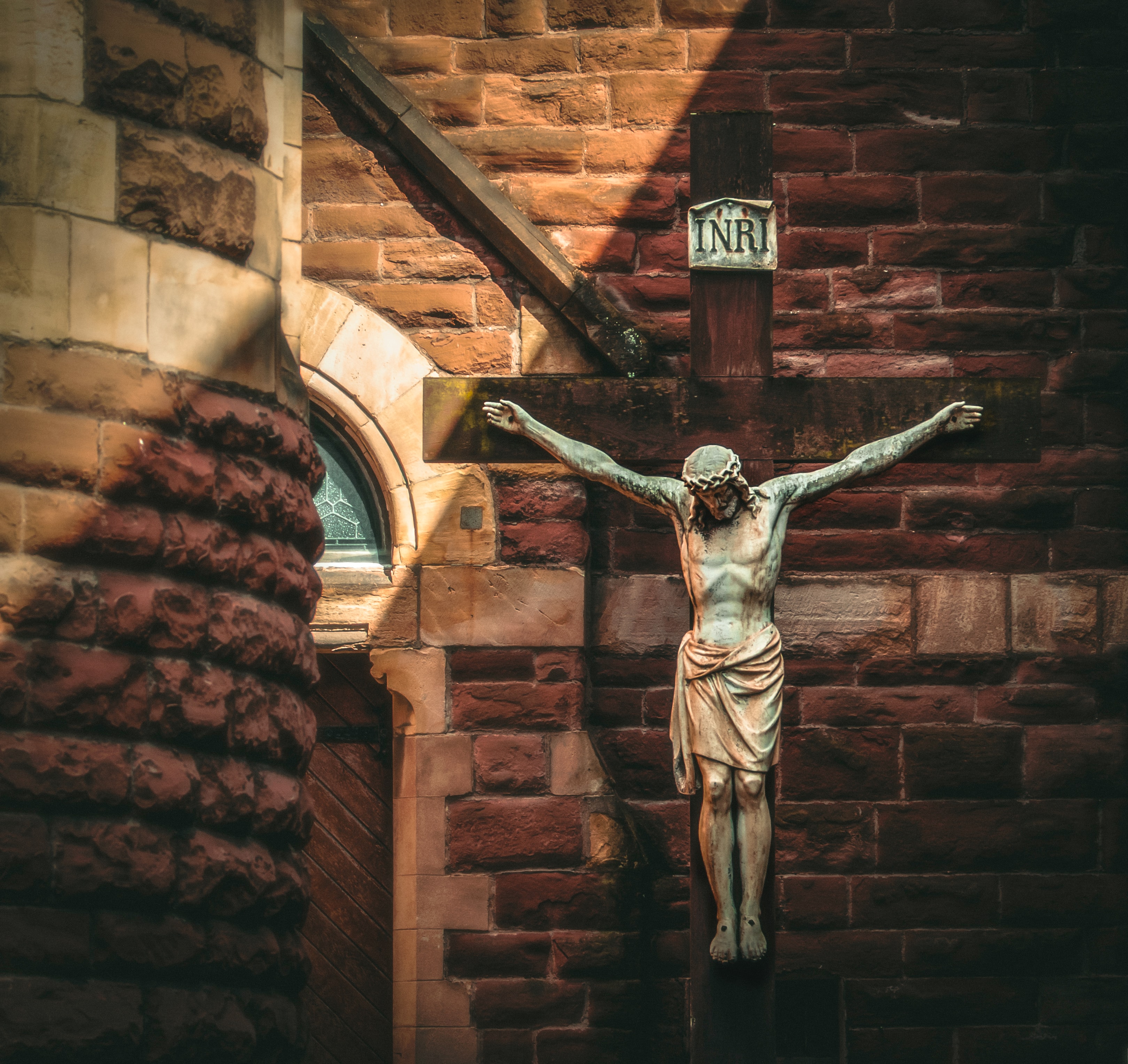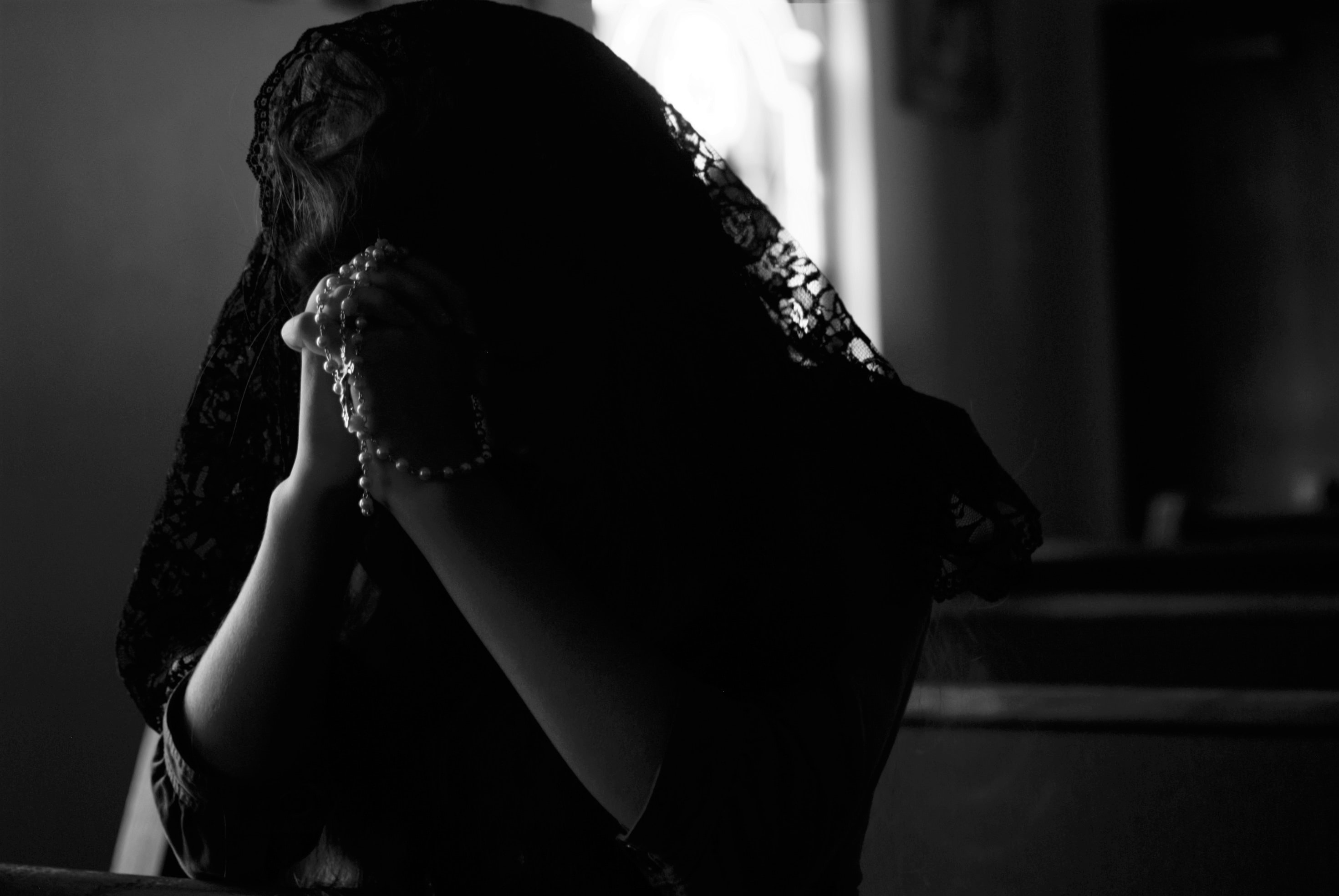The first words of Jesus in the Gospel of John (directed to John himself and to Andrew) are, “What are you looking for?” Here, at the end of the Gospel, he is still asking the same basic question: “Whom are you looking for?” Because seekers find, but only if we are open to the fullness of truth, only if we are willing to let go of our preconceived notions, our own agendas, our own selfward desires. In the hidden depths of our hearts and minds, we determine the direction of our lives by deciding what we will seek. Jesus knows this, and so he often gives us the opportunity to check ourselves: “What do you want?” “Do you want to be healed?” “Why are you weeping?”
If we truly want to see, to be whole, to receive the fullness of grace that he came to give us, we will do what is necessary, even if it is difficult, to receive it – we will climb a tree to see him, like Zacchaeus; we will call out to him incessantly like Bartimaeus; we will fall down before him like the centurion, to ask for healing for another; we will take a risk and fight through the crowd to touch the hem of his garment, in faith, like the woman who had spent all she had trying to be made clean. And like Mary Magdalen in the garden, we will weep and seek, in spite of the risk.
But if our faith is weak, we will not take these risks. If we do not trust him fully, we will fail to see the mighty work of his love in our lives. If we are not open to the surprise of grace, we will allow ourselves to doubt and be disappointed when our prayers are not answered in precisely the way we wanted. Rather than accept that we are not ready to receive everything immediately, or that what we want is not what is best for us, we will be tempted to think that the Lord has abandoned us, and we will not see him as he gives himself to us. He is always giving himself to us, but like Mary in the garden, who is looking for a dead body in the last place she saw it, we might mistake his living Presence for a gardener.
As we rejoice in the light of Christ’s Resurrection, let us also ask for the grace to keep searching our own hearts for any obstacles to grace that remain there. As we move closer to the Eighth Day, Divine Mercy Sunday, let us ask for the light to know his love and mercy in our lives, to receive and accept his forgiveness, and to allow ourselves to be loved by him as he wills. Then, in trust and love, we will be able to say, “I have seen the Lord,” and bring his healing light to others.
Las primeras palabras de Jesús en el Evangelio de Juan (dirigidas al mismo Juan y a Andrés) son: “¿Qué buscas?” Aquí, al final del Evangelio, todavía hace la misma pregunta básica: “¿A quién buscas?” Porque los buscadores encuentran, pero solo si estamos abiertos a la plenitud de la verdad, solo si estamos dispuestos a dejar de lado nuestras nociones preconcebidas, nuestras propias agendas, nuestros propios deseos egoístas. En las profundidades ocultas de nuestros corazones y mentes, determinamos la dirección de nuestras vidas decidiendo lo que buscaremos. Jesús lo sabe, y por eso a menudo nos da la oportunidad de hacer una autoevaluación:: “¿Qué quieres?” “¿Quieres ser sanado?” “¿Por qué lloras?”
Si de verdad queremos ver, ser íntegros, recibir la plenitud de la gracia que él vino a darnos, haremos lo necesario, aunque sea difícil, para recibirla: treparemos a un árbol para verlo, como Zaqueo; lo llamaremos incesantemente como Bartimeo; nos postraremos ante él como el centurión, para pedir que otro se sane; nos arriesgaremos y lucharemos entre la multitud para tocar el borde de su manto, en fe, como la mujer que había gastado todo lo que tenía tratando de ser limpiada. Y como María Magdalena en el jardín, lloraremos y buscaremos, a pesar del riesgo.
Pero si nuestra fe es débil, no tomaremos estos riesgos. Si no confiamos plenamente en él, no podremos ver la poderosa obra de su amor en nuestras vidas. Si no estamos abiertos a la sorpresa de la gracia, nos permitiremos dudar y sentirnos desilusionados cuando nuestras oraciones no sean respondidas exactamente de la manera que queríamos. En lugar de aceptar que no estamos listos para recibir todo de inmediato, o que lo que queremos no es lo mejor para nosotros, seremos tentados a pensar que el Señor nos ha abandonado, y no veremos como se entrega a sí mismo a nosotros. Él siempre se está entregando a nosotros, pero como María en el jardín, que busca un cadáver en el último lugar donde lo vio, podríamos confundir su Presencia viva con un jardinero.
Mientras nos regocijamos a la luz de la Resurrección de Cristo, pidamos también la gracia de seguir escudriñando en nuestros propios corazones cualquier obstáculo que quede para la gracia. A medida que nos acercamos al Octavo Día, el Domingo de la Divina Misericordia, pidamos la luz para conocer su amor y misericordia en nuestra vida, para recibir y aceptar su perdón, y para dejarnos amar por él como él quiere. Entonces, con confianza y amor, podremos decir: “He visto al Señor”, y llevar su luz sanadora a los demás.
 Kathryn Mulderink, MA, is married to Robert, Station Manager for Holy Family Radio. Together they have seven children (including Father Rob), and seven grandchildren. She is President of the local community of Secular Discalced Carmelites and has published five books and many articles. Over the last 30 years, she has worked as a teacher, headmistress, catechist, Pastoral Associate, and DRE, and as a writer and voice talent for Catholic Radio. Currently, she serves the Church by writing and speaking, and by collaborating with various parishes and to lead others to encounter Christ and engage their faith. Her website is www.KathrynTherese.com
Kathryn Mulderink, MA, is married to Robert, Station Manager for Holy Family Radio. Together they have seven children (including Father Rob), and seven grandchildren. She is President of the local community of Secular Discalced Carmelites and has published five books and many articles. Over the last 30 years, she has worked as a teacher, headmistress, catechist, Pastoral Associate, and DRE, and as a writer and voice talent for Catholic Radio. Currently, she serves the Church by writing and speaking, and by collaborating with various parishes and to lead others to encounter Christ and engage their faith. Her website is www.KathrynTherese.com
Feature Image Credit: Bruno van der Kraan, unsplash.com/photos/v2HgNzRDfII




 Susan Ciancio has a BA in psychology and a BA in sociology from the University of Notre Dame, with an MA in liberal studies from Indiana University. For the past 19 years, she has worked as a professional editor and writer, editing both fiction and nonfiction books, magazine articles, blogs, educational lessons, professional materials and website content. Thirteen of those years have been in the pro-life sector. Currently Susan freelances and writes weekly for HLI, edits for American Life League, and is the executive editor of Celebrate Life Magazine. She also serves as executive editor for the Culture of Life Studies Program—an educational nonprofit program for K-12 students. You can reach her at
Susan Ciancio has a BA in psychology and a BA in sociology from the University of Notre Dame, with an MA in liberal studies from Indiana University. For the past 19 years, she has worked as a professional editor and writer, editing both fiction and nonfiction books, magazine articles, blogs, educational lessons, professional materials and website content. Thirteen of those years have been in the pro-life sector. Currently Susan freelances and writes weekly for HLI, edits for American Life League, and is the executive editor of Celebrate Life Magazine. She also serves as executive editor for the Culture of Life Studies Program—an educational nonprofit program for K-12 students. You can reach her at 
 Dr. Alexis Dallara-Marsh is a board-certified neurologist who practices in Bergen County, NJ. She is a wife to her best friend, Akeem, and a mother of two little ones on Earth and two others in heaven above.
Dr. Alexis Dallara-Marsh is a board-certified neurologist who practices in Bergen County, NJ. She is a wife to her best friend, Akeem, and a mother of two little ones on Earth and two others in heaven above.
 Elizabeth Tomlin is the author of Joyful Momentum: Building and Sustaining Vibrant Women’s Groups and contributing author to the Ave Prayer Book for Catholic Mothers. She is General Counsel for the Archdiocese for the Military Services, USA. Elizabeth is an Army wife and mother of three and currently lives in the DC area. She blogs at
Elizabeth Tomlin is the author of Joyful Momentum: Building and Sustaining Vibrant Women’s Groups and contributing author to the Ave Prayer Book for Catholic Mothers. She is General Counsel for the Archdiocese for the Military Services, USA. Elizabeth is an Army wife and mother of three and currently lives in the DC area. She blogs at 




 Merridith Frediani loves words and is delighted by good sentences. She also loves Lake Michigan, dahlias, the first sip of hot coffee in the morning, millennials, and playing Sheepshead with her husband and three kids. She writes for Catholic Mom, Diocesan.com, and her local Catholic Herald. Her first book Draw Close to Jesus: A Woman’s Guide to Adoration is available at Our Sunday Visitor and Amazon. You can learn more at
Merridith Frediani loves words and is delighted by good sentences. She also loves Lake Michigan, dahlias, the first sip of hot coffee in the morning, millennials, and playing Sheepshead with her husband and three kids. She writes for Catholic Mom, Diocesan.com, and her local Catholic Herald. Her first book Draw Close to Jesus: A Woman’s Guide to Adoration is available at Our Sunday Visitor and Amazon. You can learn more at 
 Sheryl is happy to be the number 1 cheerleader and supporter for her husband, Tom who is a candidate for the Permanent Diaconate in the Diocese of Kalamazoo. They are so grateful for the opportunity to grow together in this process. Sheryl’s day job is serving her community as the principal for St. Therese Catholic School in Wayland, Michigan. Since every time she thinks she gets life all figured out, she realizes just how far she has to go, St. Rita of Cascia is her go-to Saint for intercession and help. Home includes Carlyn, a very, very goofy Golden Retriever and Lucy, our not-so-little rescue puppy.
Sheryl is happy to be the number 1 cheerleader and supporter for her husband, Tom who is a candidate for the Permanent Diaconate in the Diocese of Kalamazoo. They are so grateful for the opportunity to grow together in this process. Sheryl’s day job is serving her community as the principal for St. Therese Catholic School in Wayland, Michigan. Since every time she thinks she gets life all figured out, she realizes just how far she has to go, St. Rita of Cascia is her go-to Saint for intercession and help. Home includes Carlyn, a very, very goofy Golden Retriever and Lucy, our not-so-little rescue puppy. 
 David Dashiell is a freelance author and editor in Nashville, Tennessee. He has a master’s degree in theology from Franciscan University, and is the editor of the anthology
David Dashiell is a freelance author and editor in Nashville, Tennessee. He has a master’s degree in theology from Franciscan University, and is the editor of the anthology 


